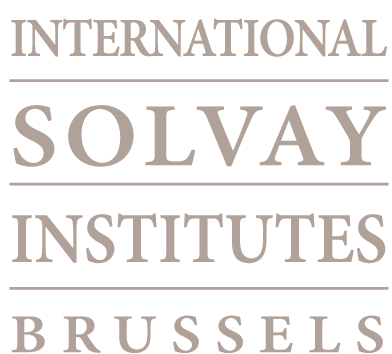
2025 Horizons Lectures in Chemistry
Todd Gingrich
Northwestern University, USA
Biography
Todd Gingrich is an Assistant Professor of Chemistry at Northwestern University. He was a Physics of Living Systems Fellow at MIT, where he derived the thermodynamic uncertainty relation for nonequilibrium steady states. In recognition of this work, the American Physical Society awarded him the 2019 Irwin Oppenheim Award (shared with close collaborator Jordan Horowitz). Before his postdoctoral fellowship, Todd studied theoretical physical chemistry at Caltech, Oxford, and UC Berkeley as a Rhodes Scholar, NSF Fellow, and Hertz Fellow. His research has been recognized with a Sloan Fellowship, an NSF CAREER Award, and the Camille Dreyfus Teacher-Scholar Award. He has also been recognized as an outstanding undergraduate teacher, receiving the Distinguished Teaching Award from Northwestern’s Weinberg College of Arts & Sciences.
Stochastic Molecular Motors and Chemical Reaction Networks Away From Equilibrium
Lecture - Solvay Room on April 1st at 4:00 p.m.
Chemical processes exhibit chaotic, high-dimensional dynamics as molecules undergo reactions and diffusion. In the special case of a closed, isolated system, the complex dynamical processes relax into a comparatively simple equilibrium steady-state probability distribution. However, the situation is more complicated when fuel flows into a system and waste flows out. For example, supra-
molecular synthetic molecular motors mix reactions and diffusion to convert the fuel energy into directed motion. Away from equilibrium, the theoretical principles and computational methodologies for describing such systems are less well understood. Using open-system molecular dynamics simulations with a minimal model, I will address current reversals, power strokes, and the thermodynamic uncertainty relation. In the second part of my talk, I will discuss tensor-network strategies for studying chemical reaction network dynamics at the level of stochastic kinetics. I will give a flavor of how these methods promise to open up new avenues for studying how reaction networks respond to perturbations.
COFFEE AND TEA WILL BE SERVED AT 3:45 P.M
Other Lectures and visits
March 31st
ULuxemburg
April 2nd
KULeuven
April 3rd
UGent
